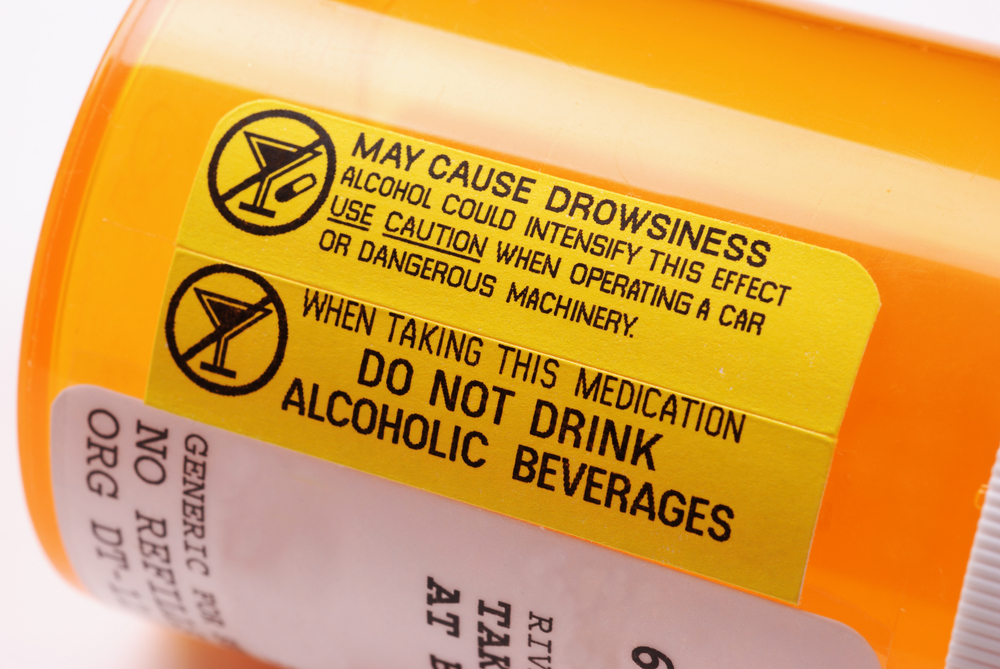A generation or two ago, heroin was the most dangerous of commonly abused opiates and opioids. Today, that dubious honor belongs to fentanyl—a synthetic opioid with 50 times the potency of heroin, developed in 1959 but first becoming a major concern in the 2010s. As a medicine, fentanyl is used in carefully measured doses for anesthesia and pain management. As a clandestinely distributed product, it is responsible for tens of thousands of overdose deaths every year. It’s not always fentanyl alone that causes such tragedies. Many dangerous effects are due to consuming this substance with other drugs. Learn the facts about fentanyl interactions.
Alcohol and Fentanyl: Interactions
Most medical prescriptions include warnings about not combining with certain other drugs, lest the medication’s effect be diminished or dangerously magnified. Many drugs are dangerous to take at all for the duration of certain prescription periods.
Fentanyl is no exception to the rule. If you receive it as a medical prescription, your doctor and pharmacist will likely warn against certain other drugs that could trigger potentially harmful interactions.
- Consuming fentanyl with stimulants can trigger blurry vision, extreme drowsiness, mental confusion, paranoia, and/or dangerously intense euphoria.
- Taking fentanyl with alcohol or other depressants can magnify the opioid’s relaxant effect, causing irregular body functions, dangerously slowed breathing, or coma.
- Methadone, an opioid used in some medication-assisted treatments for heroin and fentanyl addiction, also interferes with the effects of medical fentanyl. Plus, mixing fentanyl with other opioids may risk triggering serotonin syndrome, a dangerous and sometimes lethal condition characterized by overstimulated body functions and by shivering, sweating, diarrhea, extreme restlessness, and/or mental confusion.
- Serotonin syndrome is also associated with certain antidepressants as well as over-the-counter supplements. (Since most supplements are not required to include detailed warning labels covering every risk, it pays to do independent research and consult your doctor before taking a supplement, especially if you are on any form of medication.)
The Perils of Unknown Substances
Worse than potential fentanyl interactions in known drug combinations, is illegally purchased street “fentanyl” that may include any number of cheaper substances added to stretch a supply. Even if inert in themselves, these substances increase the risk of overdose for users, who are never sure how much fentanyl they’re actually taking.
A more common danger, however, is purchasing “heroin” or “cocaine” without knowing that the mixture actually contains substantial amounts of fentanyl. To illegal drug vendors, adding this filler is an easy way to increase supplies at less expense for more profit. For buyers, it’s a dangerous game with life-or-death stakes:
- Fentanyl being 50 to 100 times more potent than heroin, it’s easy for users accustomed to heroin to get a lethal overdose from their “regular” amount.
- Unknowingly taking fentanyl (a depressant) with cocaine (a stimulant) can wreak havoc on the body’s natural functions, perhaps triggering heart or respiratory failure. In addition, treatment for opioid overdose may be delayed if the presence of fentanyl is unsuspected.
- Mixing fentanyl with methamphetamine—a stimulant that shares the characteristic of delivering considerable potency in small doses—combines two drugs with extremely high overdose potential, exponentially multiplying the risk.
How to Avoid Dangerous Fentanyl Interactions
For most people, avoiding illegal drugs, and taking any prescription drugs according to instructions, is adequate protection from the danger of fentanyl interactions. If someone is actually addicted to this substance or another drug, however, “just stopping” can be impossible or dangerous.
If you have any suspicion that the use of a drug—prescription or otherwise—is getting out of control, seek medical treatment sooner rather than later. The best time to stop addiction is as soon as possible, before it can do irreparable harm through its interactions with body, brain, and quality of life.
Fentanyl Addiction Treatment for Men
At PACE Recovery, we provide individualized care and therapy to help our clients recover from addiction to fentanyl and other opiates. (We treat other substance use disorders and mental illnesses as well.) Our program is geared to the specific needs and pressures of the male perspective, making PACE an ideal recovery environment for men who struggle with opening up and facing their weaknesses.
Our motto is “Positive Attitudes Change Everything.” Contact us today to get started on changing your life for the better.



